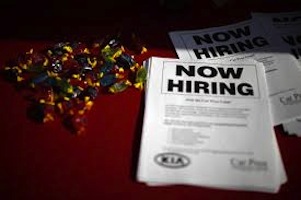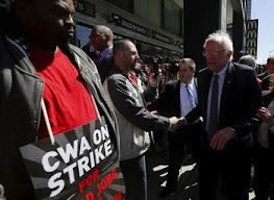Jack examines in detail Trump’s acceptance speech and its non-traditional Republican themes criticizing Free Trade, US national debt, NAFTA, China, offshoring, taxes, military spending-NATO, and…

jack rasmus

As Jack Rasmus predicted last week, the initial scenario for the Brexit vote is not an immediately global financial crash. The threat is more intermediate…

Jack discusses the consequences and likely developments from the historic vote yesterday for the UK to leave the European Union. The deep origins of the…

Jack reviews in detail the upcoming UK vote to leave the European Union. Cameron’s ‘faustian’ bargain is coming. What will the ‘devil’ demand? The origins…

Jack discusses the global bond market conditions today, many times the size of the world’s stock markets and far more important. Bond guru, Bill Gross,…

Jack reviews today’s just released jobs numbers confirming his prior prediction jobs growth would slow in wake of US GDP slowdown last quarter. Plus an…

Jack Rasmus interviews Alan Benjamin, eyewitness to developing events in France, where workers and students are protesting and striking against government attempts to impose by…

Jack Rasmus welcomes CWA Local 1400 president and union bargaining committee member, Don Trementozzi, to report the facts about the current Verizon strike, now in…

Jack comments on today’s US job creation numbers for April, which show a significant decline in new jobs created, to 160,000, compared to previous months.…

Progressive Radio Network, May 01, 2016 This past week the U.S. government announced the country’s economy rose in the January-March 2016 at a mere 0.5…

Jack comments on the recent Wikileaks revelations of secret IMF plans to impose still more austerity on Greece before this summer. Jack revisits his predictions…

Jack Rasmus discusses the strike of 36,000 communication workers that began this week at Verizon Communications and how it reflects the radical destruction by corporations…
